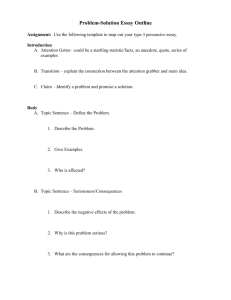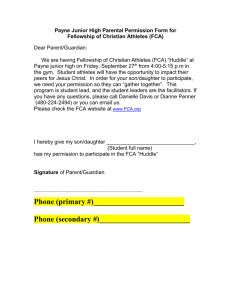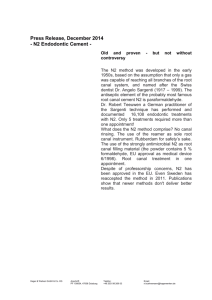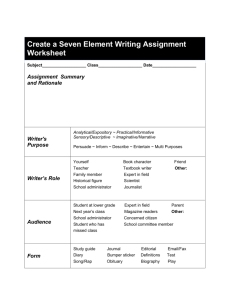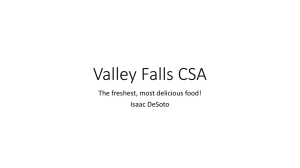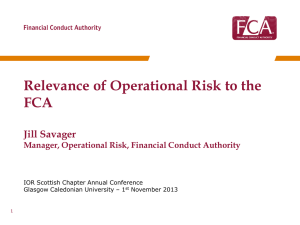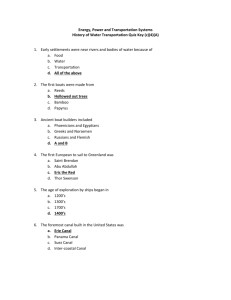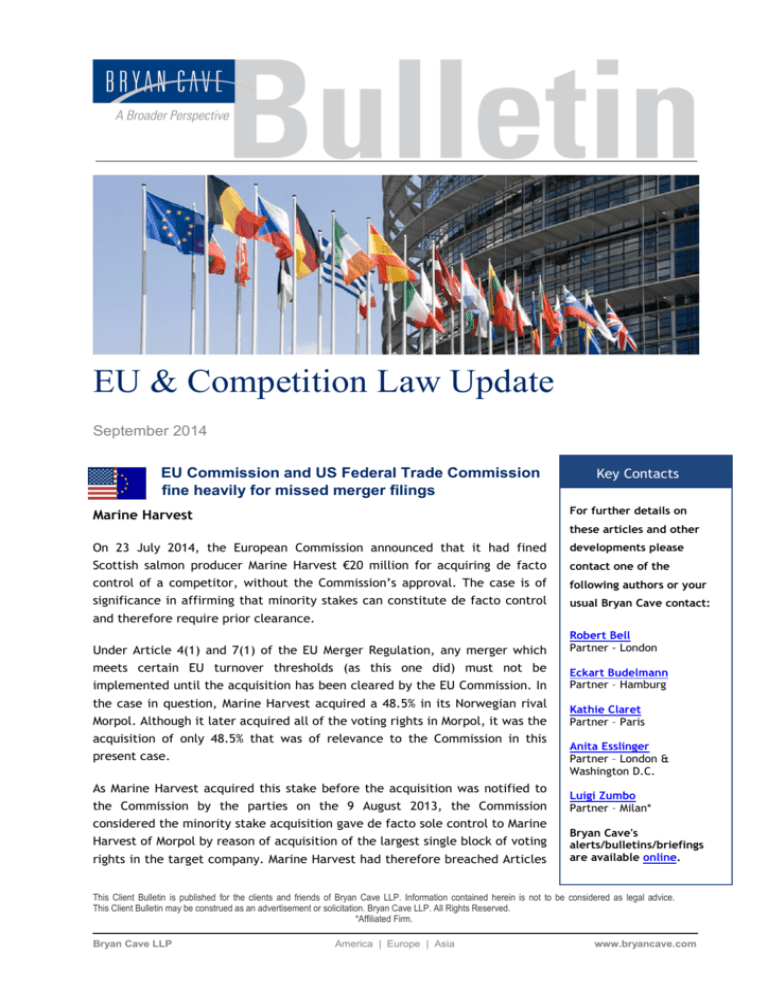
EU & Competition Law Update
September 2014
f
EU Commission and US Federal Trade Commission
fine heavily for missed merger filings
Key Contacts
For further details on
Marine Harvest
these articles and other
On 23 July 2014, the European Commission announced that it had fined
developments please
Scottish salmon producer Marine Harvest €20 million for acquiring de facto
contact one of the
control of a competitor, without the Commission’s approval. The case is of
following authors or your
significance in affirming that minority stakes can constitute de facto control
usual Bryan Cave contact:
and therefore require prior clearance.
Under Article 4(1) and 7(1) of the EU Merger Regulation, any merger which
meets certain EU turnover thresholds (as this one did) must not be
implemented until the acquisition has been cleared by the EU Commission. In
the case in question, Marine Harvest acquired a 48.5% in its Norwegian rival
Morpol. Although it later acquired all of the voting rights in Morpol, it was the
acquisition of only 48.5% that was of relevance to the Commission in this
present case.
As Marine Harvest acquired this stake before the acquisition was notified to
the Commission by the parties on the 9 August 2013, the Commission
considered the minority stake acquisition gave de facto sole control to Marine
Harvest of Morpol by reason of acquisition of the largest single block of voting
rights in the target company. Marine Harvest had therefore breached Articles
Robert Bell
Partner - London
Eckart Budelmann
Partner – Hamburg
Kathie Claret
Partner – Paris
Anita Esslinger
Partner – London &
Washington D.C.
Luigi Zumbo
Partner – Milan*
Bryan Cave's
alerts/bulletins/briefings
are available online.
This Client Bulletin is published for the clients and friends of Bryan Cave LLP. Information contained herein is not to be considered as legal advice.
This Client Bulletin may be construed as an advertisement or solicitation. Bryan Cave LLP. All Rights Reserved.
*Affiliated Firm.
Bryan Cave LLP
America | Europe | Asia
www.bryancave.com
4(1) and 7(1) of the Merger Regulation by not pre-notifying the acquisition of the shares.
What was of crucial importance in this case was the relative allocation of the voting rights in
Morpol between Marine Harvest and the other shareholders. Marine Harvest held the largest block
of voting rights by a considerable margin to other shareholders. Consequently, Marine Harvest’s
acquisition of a 48.5% shareholding had given them effective control of the company.
It is important for both companies and legal advisors alike to note that although clearance was
eventually given, the clearance decision did not exonerate the company’s failure to notify the
Commission before de facto control was established. Through this decision, the Commission is keen
to emphasise through the large size of the fine for a procedural infringement, that notification is a
strict liability infringement of the EU Merger Regulation. Failure to notify when required is not
exonerated by the circumstances of the case and indeed other mitigating circumstances except in
the most exceptional circumstances. This policy decision is designed to safeguard the Commission
from opening the floodgates to many non-contentious acquisitions seeking retrospective clearance.
Some could argue on the other hand that the size of the fine seems unjust given that a clear
majority stake was not acquired by Marine Harvest. It is arguable that it is not Marine Harvest’s
fault or problem if the majority of the other shareholders through internal disagreement and
fracture bestow on them control indirectly. The present case therefore creates commercial
uncertainty as to when regulatory notification and clearance is required in minority acquisitions.
Caution in all cases is therefore advised.
Also of note and perhaps as further evidence of the rather rough justice applied to Marine Harvest
is the fact that the de facto control that they acquired in the form of voting rights, were not even
exercised by Marine Harvest before the Commission gave its later clearance.
The case is timely given recent recent EU Commission interest in extending the remit of the Merger
Regulation to cover certain minority share acquisitions short of decisive influence or control.
Berkshire Hathaway
In a similar and complimentary US case, the Federal Trade Commission (FTC) have fined Berkshire
Hathaway an amount equal to $16,000 per day for failing to file share acquisitions under the HartScott-Rodino Antitrust Improvements Act 1976.
Berkshire are alleged to have failed to make the necessary filings during their acquisition to hold a
total of 28% of USG Corporation stock. They were fined heavily by the FTC on the basis of several
grounds including the fact that this behaviour was a repeat offence by Berkshire. Full details of the
case including lessons learned and the danger all investment companies face can be found in our
full summary accessible here.
2
Bryan Cave LLP
America | Europe | Asia
www.bryancave.com
FCO spring €8.2m cartel fine on mattress manufacturer
On 22 August 2014, the German Federal Cartel Office (“Bundeskartellamt”) fined a leading
manufacturer of mattresses €8.2m for enforcing resale price maintenance against retailers selling
its products. Between July 2005 and December 2009, the manufacturer’s representatives agreed
with retailers that they should not offer certain strategic products of a well-known brand name
below the sales prices set by the manufacturer.
The manufacturer enforced minimum resale prices through talks with independent retailers and
purchasing cooperatives of retailers or by correspondence with the retailers requesting compliance
with the minimum resale prices. Where a retailer failed to maintain the set minimum resale prices
and other retailers complained about such deviation, the manufacturer repeatedly discussed the
prices with the retailer. Such discussions often resulted in an agreement on a retail price. The
manufacturer applied this practice to both bricks and mortar and online sales.
Due to an increase in online sales since 2005, the manufacturer offered selected online dealers to
act as a “authorized online dealer” for the brand using the manufacturer’s logo and data, provided
they maintained the minimum resale prices for the strategic product lines. The authorised dealer
scheme was designed to bar the dealers from Google-Adwords or from Ebay for unauthorized usage
of manufacturer’s data under Ebay’s brand protection programme. Further, the manufacturer
enforced the retail prices by threatening certain dealers with delays in supply or legal steps.
The Bundeskartellamt initiated proceedings as a result of complaints within the market. In
consequence, it investigated several companies in the industry in August 2011. Proceedings against
three other manufacturers are still ongoing. The decision imposing the fine is not yet final and can
be appealed to the Düsseldorf Higher Regional Court.
Under EU and German Competition law, retailers are free to set the prices they want for a certain
product. Manufacturers are generally only allowed to issue non-binding price recommendations (or
to set maximum prices). They are, however, not allowed to oblige their retailers to comply with
minimum resale prices or to exercise pressure on them to achieve a certain price level, for
instance, by threating to stop or delay supplies. Also, indirect means to raise the price, such as
incentives, a ban on making special offers, rebates or clearance sales have been condemned by the
EU Commission. Andreas Mundt, President of the Bundeskartellamt, highlighted that the prohibition
of resale price maintenance came into force in the 1970s, yet the Bundeskartellamt still receives
complaints from various economic sectors in the present day.
French Broadcasting Authority refuses to shift LCI, Paris Première and
Planète + from pay-television channels to free-to-air
On July 29, 2014 France's broadcast regulator (CSA) rejected applications from private national
French TV channels TF1 (Bouygues group), M6 (RTL group) and Canal+ (Vivendi group) to convert
three of their respective pay-television channels to free-to-air.
3
Bryan Cave LLP
America | Europe | Asia
www.bryancave.com
In January 2014, pursuant to Article 42-3 of the law of 30 September 1986 amended by the law of
15 November 2013 allowing the CSA to permit the migration of a pay regime to free or vice versa,
TF1 applied to take its 24-hour news channel LCI from paid to free, while M6 wanted the same for
its high-end cultural channel Paris Premiere. Canal+ also applied to move its documentary channel
LCI from paid to free, while M6 wanted the same of its high-end cultural channel Paris Première.
Canal + also applied to move its documentary channel Planète + from pay-TV to free-TV.
In taking its decision, the CSA, whose mission includes ensuring sufficient diversity of operators,
examined such factors as the quality and diversity of programs in terms of their competitive and
editorial effects, as well as their economic impact on all audiovisual sector players (notably the 25
existing free-TV channels), especially in terms of advertising revenue share.
As part of its investigations, the CSA, in April 2014, asked the French Competition Authority (FCA)
to issue recommendations on the competitive impact on the advertising market of a possible switch
to free-to-air television of LCI, Paris Première and Planète +, which would then become almost
fully ad-supported.
In its Opinion dated June 18, 2014, the FCA pointed out that the simultaneous transition of three
channels from pay-TV to free-to-air could weaken all free-to-air channels and “deepen the
imbalance” between the historical groups (TF1, Canal +, M6) and the more recent free-TV
independent groups that do not have as large a portfolio of channels or nearly as much advertising
space.
With respect to LCI, the FCA considered that as result of a new free channel in addition to the four
TF1-affiliated channels already present on free-TV (TF1, TMC, NT1, and HD1), the TF1 group would
benefit from “a dominant position on the free-to-air television, with a broad offering which would
alone satisfy a large majority of listeners.” According to the FCA, TF1 already concentrates 42% of
ads (against 19.38% for M6), and five TF1-affiliated free channels would mean five times more
outlets for advertisers, giving them the opportunity to propose package deals or volume discounts.
The FCA suggested that if LCI were to become free of charge, that LCI should ideally use a separate
advertising network totally distinct from TF1, but concluded that this would be excessively
burdensome. Rather, it recommended two measures, limited in time, to help TF1 avoid overly
promoting its subsidiary:
1. Ban cross promotions (where TF1 recommends to its viewers to watch LCI).
2. Sales of advertising space coupled between the two channels.
Nevertheless, the FCA ultimately left it to the CSA to decide between “the undoubted benefits for
viewers of the arrival of three strong brands in the free-to-air television field” and “the risks to the
diversity of operators”.
The CSA thereafter made its decision in the light of two economic criteria and a qualitative
assessment. First, the CSA noted that the present state of the advertising market is characterized
by a sharp drop in advertising revenues for television, adding that no significant market recovery is
expected in the short term and that the medium term outlook remains uncertain. According to the
4
Bryan Cave LLP
America | Europe | Asia
www.bryancave.com
CSA, the arrival of one or more additional free channels could not now be sustained by a growth of
the advertising market.
The second criterion considered was the competitive situation of the 25 current channels on the
French free-to-air television market. The CSA considered that the financial situation of several
free channels was still fragile, especially those that are not backed by a large group.
The third criterion was less economic and more qualitative. In terms of supply and consumer
demand for television, the CSA believes that the arrival of one or more additional free channels in a
landscape already composed of 25 channels constituting a wide range, would not result in a
significant increase in television usage and would instead result in the audience shifting at the
expense of existing free channels.
In respect of LCI, the CSA noted that the arrival of a third continuous free news channel exclusively
financed by advertising could destabilize the existing two 24-hour free French news channels (BFM
and iTélé), one of which only recently reached break-even and the other is operating at a deficit.
Similarly the CSA considered that Paris Première, if it became a free channel, would be likely to
adversely affect the economic and financial viability of existing free channels with a similar format
and audience.
Finally the CSA noted that the arrival of Planète + could affect the free documentary channel RMC
Découverte launched in 2012, which has not yet reached its financial equilibrium.
In any event, the CSA has left the door partially open to revisiting the issue, highlighting that its
ruling was based on the current state of the advertising market. “A more favourable evolution of
the market could justify reopening the issue in the future”, it said at the end of its decision.
The ruling casts doubts over hundreds of jobs at LCI and Paris Premiere. Both TF1 and M6 have
announced they did not see a viable future for these channels unless they switched to free-to-air.
LCI, which was launched 20 years ago as France's first 24-hour news channel, is now trailing behind
its free-to-air rivals iTélé, owned by Canal+, and BFM TV (in the NextRadioTV group).
Canal+, for its part, indicated that it had only applied for Planète+ to move to free-to-air because
it feared that the switch of key channels such as LCI and Paris Premiere would have hurt the
prospects of pay-TV as a whole.
Italian Competition Authority opens an in-depth investigation into the
vending services sector
On 17th July 2014, the Italian Competition Authority (ICA) opened an in-depth investigation into
twelve companies (the Accused Companies) providing vending services in Italy for alleged
infringements of Article 101 TFEU, the prohibition of anti-competitive agreements.
The Accused Companies supply, install and manage vending machines for hot and cold drinks,
snacks and food.
5
Bryan Cave LLP
America | Europe | Asia
www.bryancave.com
The investigation stemmed from an anonymous complainant referring to two telephone
conversations between the latter and the call center operators of one of the Accused Companies.
The ICA found that from these conversations, an agreement dividing up customers could be found
among the Accused Companies under which clients of one of the Accused Companies cannot receive
services or products by another companies involved.
In particular, the complainant was not able to benefit from a commercial offer since it declared to
already be client of one of the Accused Companies.
Therefore, the ICA held that the Accused Companies tried to avoid competing with each other and
alleged that the Accused Companies had decided to illegally assign customers among them.
Through this strategy, the Accused Companies cause obvious damage to customers in terms of
higher prices resulting from the complete lack of competition.
Further, the ICA found that the alleged anti-competitive agreement can also affect the intraCommunity market as the agreement regards all the Italian territory, which is an important part of
the European Union market, given that the most important Italian undertakings active in the
vending services are involved.
If proven, the conduct raises serious potential issues regarding its compatibility with European
Union competition rules and specifically with Article 101 TFEU. In fact, any agreement not to
compete with competitors would fall within the prohibition in Article 101 TFEU that expressly
forbids the assignment of customers.
In our view, the investigation and scrutiny is welcome. If wrongdoing is found, the ICA investigation
and subsequent enforcement action could be considered a high profile deterrent against the
assignment of customers. However, the alleged wrongdoing is not proven at this stage and the
investigation continues.
Mining contractor digs deep to pay € 17.4 m cartel fine
On 28 August 2014, the German Federal Cartel Office (“Bundeskartellamt”) imposed a total fine of
€ 17.4 m on five specialized mining contractors for price-fixing and bid-rigging. Proceedings were
initiated by an investigation in April 2013 following an application under the Leniency Notice of a
further contractor. The latter was not fined due to the Leniency Programme of the
Bundeskartellamt.
The companies had allocated future orders in advance in order to avoid price wars in the course of
tendering procedures in two different complexes:
The first case involved the conversion of the former iron ore mine “Konrad” close to Salzgitter into
a repository for the disposal of radioactive waste. In this instance, lots for mining works worth
6
Bryan Cave LLP
America | Europe | Asia
www.bryancave.com
€ 110 m were intended to be awarded by the German Company for the Construction and Operation
of Repositories (Deutsche Gesellschaft zum Bau und Betrieb von Endlagern für Abfallstoffe – DBE
GmbH, Peine) in 2011. According to the Bundeskartellamt, the companies agreed upon the
allocation of certain lots as well as on the amount of tender offers (and “cover quotes”) during the
bidding phase.
Further, in a meeting in a hotel in Gladbeck in 2008, competitors agreed that they would avoid
price wars for orders in relation to specialized mining works by RAG Deutsche Steinkohle AG. The
competitors agreed to coordinate their orders by this customer and also allocated quotas for the
contracts to be awarded. From October 2010 to November 2012, the competitors agreed upon the
allocation of more than 30 projects in several coal mines with a net order volume of approximately
€ 80 m.
The fines are not yet final and can be appealed to the Düsseldorf Higher Regional Court.
Red card for Canal + exclusive rugby rights
On request of the television channel BeIN Sports, the French Competition Authority (“FCA”) on July
30, 2014 announced the suspension of rival Canal+’s exclusive five-year deal with France’s national
Rugby Union league (“LNR”) for coverage of first division or “Top 14” matches over the next five
seasons.
The FCA’s ruling will come into effect after the 2014-15 season so as not to cause problems for this
year’s Top 14 championship. However, the Authority has ruled that bidding for the rights for the
remaining four seasons must be re-opened by January 31, 2015 for a new competitive tender under
transparent and non-discriminatory conditions.
On January 14, 2014, Canal+ was granted by the LNR the exclusive rights to Top 14 matches for the
next five years. This grant followed a dispute with the LNR over the latter’s decision to open up the
rights to the 2014-18 seasons to a new round of competitive bidding in order to secure a better
return than that provided under the pair’s existing contract.
Canal+ responded at the time by filing several legal actions, including one before the Paris Tribunal
de Grande Instance, to have the competition suspended. Although the League at first deplored
these actions as being a strategy of intimidation, the LNR nevertheless withdrew its call for tenders
prior to any legal decision and three days before the deadline for submission of bids, and awarded
the rights once again to the leading French sports channel for some € 355 million. However, Canal +
agreed to pay € 71 million per year, whereas it had only paid € 31.7 million per season since 2011.
BeIN Sports then filed a complaint with the FCA in March 2014 about the conditions under which the
rights had been awarded. According to BeIN Sports, the Canal + agreement with LNR was anticompetitive pursuant to Articles L. 420-1 and L. 420-2 of the French Business Code and constituted
an abuse of dominant position by Canal + under Article 102 of the TFEU.
The FCA thoroughly reviewed the French pay TV market, the parties’ positions in terms of sports
7
Bryan Cave LLP
America | Europe | Asia
www.bryancave.com
broadcasting and the procedure leading up to the LNR/Canal+ deal. The FCA concluded that this
“agreement and the way in which it was negotiated and entered into may reveal an anticompetitive
agreement.”
The FCA also considered the situation likely to be “detrimental to the development of BeIN Sports,
the only newcomer likely to enhance competition in pay TV sports programs”.
According to the FCA, a transparent and non-discriminatory competition is more necessary than
ever. The rights to the Top 14 games can be described as “premium rights”, just like those to
soccer matches or the Olympics: they generate large audiences, play a significant role in the
competition between channels, are a real driving force for subscriptions and their value has risen
significantly. For these reasons, the FCA found the award of the Top 14 rugby rights must be
subject to a transparent and non-discriminatory competitive bidding process.
In consequence, noting “a serious and immediate threat to the field of pay television and to the
interests of consumers, as the award for five years of all the rights of the Top 14 to Canal + would
effectively reserve this championship to viewers who can pay a 40 euro per month subscription
[that of Canal +] and would partially obliterate these broadcasts to consumers interested in a
cheaper subscription close to 12 euros per month” [that charged by BeIN Sports], the FCA, pending
its decision on the merits, ordered Canal + and the LNR to suspend the agreement concluded on
January 14, 2014.
Although the LNR has appealed the FCA’s decision, this is another victory for BeIN Sports in the
competition over sports rights with Canal +. Some two months ago, the Commercial Court of
Nanterre had found that the Qatari sports channel BeIN Sports did not engage in unfair competition
against the French TV channel Canal + by charging lower rates for its subscriptions. Please see our
August newsletter for a summary of this early case.
Italian Competition Authority opens an investigation for abuse of dominance
into the plastics packaging recycling market
On 17th July 2014, the Italian Competition Authority (“ICA”) opened an in-depth investigation on
the Italian consortium CONAI entrusted with the plastics packaging recycling in Italy for violating
Article 102 TFEU, the provision against the abuse of a dominant position.
In application of the European “extended producer responsibility” principle, Italian law establishes
that plastics packaging producers must be responsible for the recycling of the waste generated.
Thus such producers are obliged to become member of CONAI and pay the membership fee unless
they are able to set up an alternative recycling system approved by the Ministry of the Environment
(“ME”). In order to get this approval, producers must file an application with the ME which shall
control whether the alternative recycling system meets the legislative requirements.
The Italian company Aliplast S.p.A. (“Aliplast” or the “Complainant”) filed an application to have
its own recycling system (named “P.A.R.I.”) authorised by the ME but, during the relevant
administrative procedure, CONAI raised several legal challenges.
All the exceptions raised by CONAI were held groundless by the ME and the Italian administrative
8
Bryan Cave LLP
America | Europe | Asia
www.bryancave.com
courts so that the ICA found that the above behaviour may be deemed as a general exclusionary
strategy aimed at delaying or preventing the approval of the P.A.R.I.
The ICA held that CONAI enjoys a dominant position in the plastics packaging recycling market as
the majority of the relevant undertakings do not have an alternative recycling system. The ICA held
that CONAI was attempting to maintain its economic strength by impeding the entry of a new
system.
Further, the ICA found that the alleged exclusionary strategy could also cause damage to the intraCommunity market as: (i) the plastics packaging recycling regards all the Italian territory, and (ii)
the alleged anti-competitive conduct may negatively influence foreign undertakings willing to set
up an alternative recycling system in Italy.
In our view, the ICA’s decision is welcome in so far as it can help make the overall recycling sector
more competitive and provides the consumer and the relevant undertakings with high cost savings.
Shocked reaction – Challenge to EU in high voltage power cables case
On 11 August 2014, the European Commission published details of a challenge made against the
Commission in the high voltage power cables cartel case. The cartel case relates to the €302 million
fine levied against 11 producers of high voltage power cables for operating a market sharing cartel.
Specifically, Pirelli, a parent company at the time of Prysmian, was levied with a fine €104,613,000
under joint and several liability with Prysmian. As Pirelli was considered by the Commission to be in
a position of decisive influence and control of Prysmian, they were held liable under the Akzo Nobel
case precedent of parent company liability. Our previous post on this case can be found here.
Pirelli has not acquiesced quietly to the fine and have challenged the Commission seeking that
either their liability is annulled or that creditors pursue Prysmian as the perpetrator, before
pursuing Pirelli as a liable parent. Pirelli’s case to the General Court is as follows:
Perhaps Pirelli’s strongest argument is that its rights of defence has been bypassed. It did not
have access to evidence when the fine was levied on Prysmian and so has been harboured with
liability it had no opportunity to challenge;
that the conditions of the parental liability presumption have not been met; and
that the Commission has breached the principle of proportionality by extending parental
liability to Pirelli.
In our view and under the same logic as the rights of defence argument above, Pirelli could argue
that the Akzo Nobel precedent is unfair in not allowing rights of defence whatsoever for parent
companies. They are found liable merely under reason of economic ownership and presumed
control and influence. No evidence has to be produced that such influence was exercised and that
the cartel behaviour was encouraged or even recognised by the parent. This was an argument put
by the defence in the Akzo Nobel case before the European Court of Justice.
9
Bryan Cave LLP
America | Europe | Asia
www.bryancave.com
Many have since believed the ECJ to have erred in law when the Court did not consider parent
company liability to be a form of strict liability. However, regardless of the perceived inequality of
parent company liability, if the Pirelli challenge is to succeed it will likely be on procedural grounds
rather than substantive ones. It is highly unlikely that the Commission will reverse their precedent
from the Akzo Nobel case as it allows the Commission flexibility in retrieving the cash from fines
from parent companies with deep pockets. It also acts a powerful incentive throughout the EU for
competition compliance and a compliance culture to filter down through organisations and their
subsidiaries when owners know they may be held liable for the anti-competitive actions of their
subsidiaries.
It is understood that Prysmian alongside many of the other parties found liable are also lodging
appeals to the fines before the General Court. A link to the official journal entry on Pirelli can be
found here.
10
Bryan Cave LLP
America | Europe | Asia
www.bryancave.com

